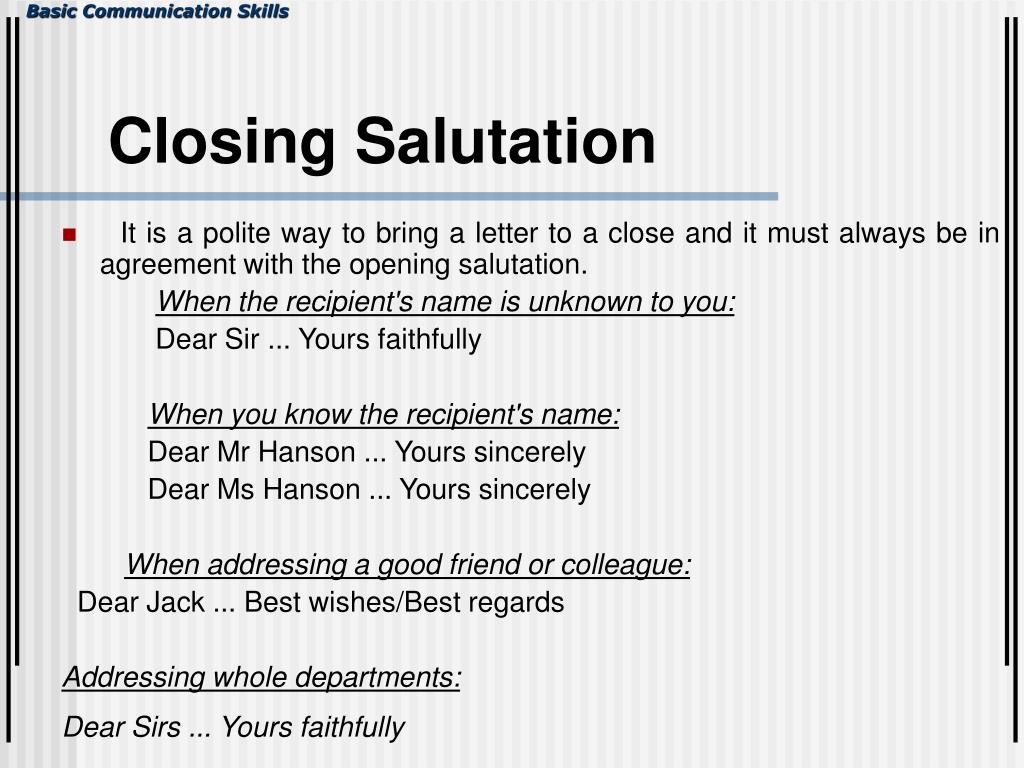

#Professional closing salutations how to
Check out our page on whether to use Mrs, Ms or Miss.įor more help with business writing, take a look at my book Business Writing Essentials: How to Write Letters, Reports and Emails.ĭesigned to help you write business emails, letters and reports quickly and confidently, it’s packed with tips, guidelines and ready-to-use letter and email templates. Veuillez recevoir, Monsieur/Madame, mes salutations distingues (formal).

Make sure you use the correct form of address when you write to women. In British English, “Cheers” means “thank you and goodbye”. (either write your first name / omit it)” If you’re writing to a colleague, you can either use their first name, or start the email immediately. You can write the person’s first name and use a more friendly ending. If you’ve been ‘best,’ ‘best,’ ‘best’ back and forth, and all of a sudden I sent you a. A switch to a formal signoff has weighted meaning when it is a new ending you use in a conversation. I write with reference to Ms Smith, who has worked in my company since …”īusiness emails are usually much shorter than business letters. ‘Sincerely’ says to me, ‘We have a formal relationship,‘ Schwalbe said.

In British English, we also use the formal term “To whom it may concern” when we write a letter of reference on behalf of someone. “An early reply would be appreciated / I look forward to hearing from you at your earliest convenience.” I am writing to enquire about your prices…” This close is correct if the name of the recipient is mentioned in the salutation, for. You should end the letter with “Yours sincerely”. What are the typical closings in English letters Yours sincerely. In most business correspondence, you can start with “Dear Mr / Dear Ms” + surname. Formal business correspondence (for example: a letter of enquiry) If you start with this, you should end “Yours faithfully”. If you don’t know the person you’re writing to, you can start with “Dear Sir / Madam”. Kerr: Only use this salutation in friendly business relationships. The way you start your letter depends on how formal you need to be. The closing: 'Later' Bates: Not appropriate for business correspondence it sounds like youre 14 years old. Here are some widely used phrases for starting and ending business letters and emails in British English. As this is not a standard way of ending business emails, it makes your writing look unprofessional. If you write business correspondence, you’ll need to know how to start a letter (or email) and how to end the letter or email.įor example, a common mistake in ending an email is to write “Bye” or “Bye Bye”. Use this type of email sign off in a less formal business situation and with those you know well. Many corporate cultures favor the formal email sign off. Make sure that your business letters and emails use the correct salutations and endings. Use this type of email closing in a business email to someone who has authority over you or to someone you dont know very well.


 0 kommentar(er)
0 kommentar(er)
